Question And Answer
Publications
Articles, publications, books, tools and multimedia features from the U.S. Institute of Peace provide the latest news, analysis, research findings, practitioner guides and reports, all related to the conflict zones and issues that are at the center of the Institute’s work to prevent and reduce violent conflict.
Inside North Korea: A Joint U.S.-Chinese Dialogue
What are the U.S. visions for the future of the Korean peninsula? Panelists at a recent conference concluded that a humanitarian, rather than military, response to the crisis is necessary, along with expressed potential for the Six-Party framework to address issues beyond North Korea's nuclear program.
Whither the Six-Party Talks?
It has been nine months since the fourth round of Six-Party Talks concluded with a joint statement of principles. Unfortunately, that statement now appears to be the high-water mark of the six-party process rather than a baseline for future negotiations.
Inside North Korea: A Joint U.S.-Chinese Dialogue
The U.S.-Chinese dialogue on the North Korean nuclear issue is discussed in this USIPeace Briefing.
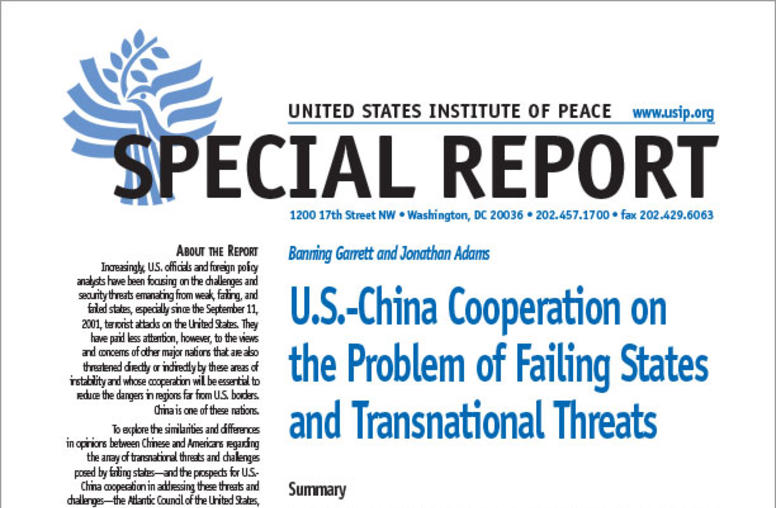
U.S.-China Cooperation on the Problem of Failing States and Transnational Threats
Summary American and Chinese perspectives on the threats and challenges emanating from failing states have been converging, especially since the September 11, 2001, terrorist attack on the United States.
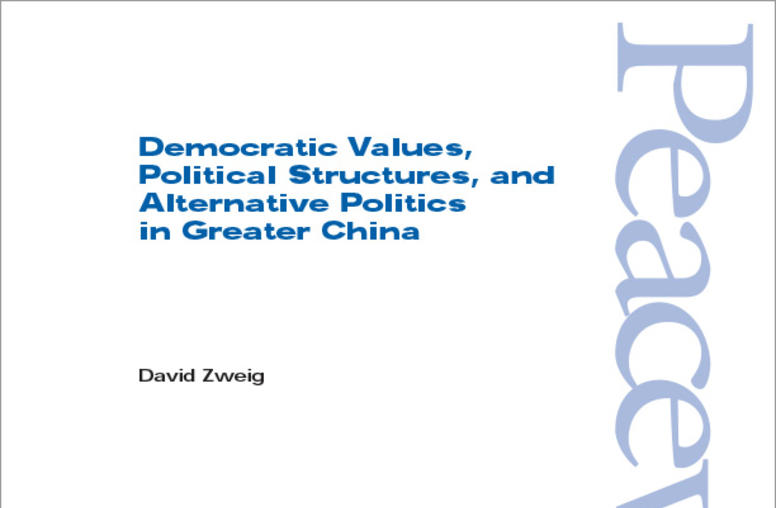
Democratic Values, Political Structures, and Alternative Politics in Greater China
This study addresses the relationship among popular attitudes toward democracy, a state's political structures--parties, elections, and the government bodies to which candidates in these societies are elected--and the ways in which people participate in politics. It argues that high levels of popular democratic consciousness and strong demands for participation, in the absence of legitimate democratic institutions, lead citizens to resort to nonformal political strategies, including civil dis...
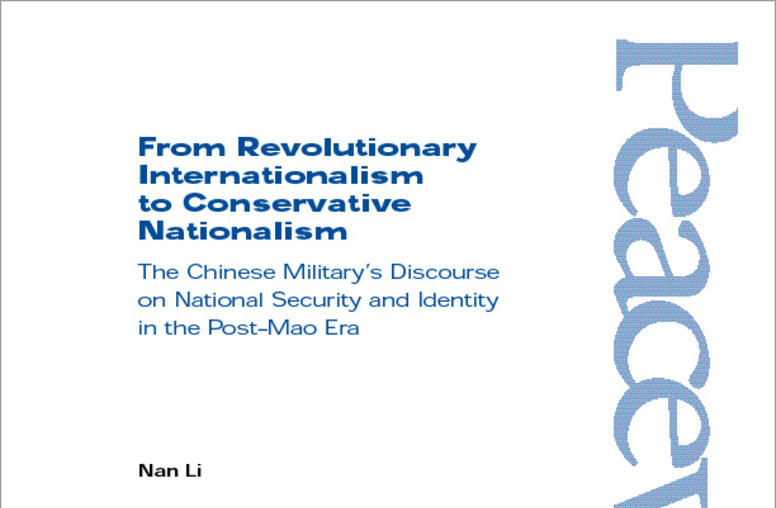
From Revolutionary Internationalism to Conservative Nationalism
Ever since Deng's 1985 "strategic decision" and the corresponding doctrinal change from the country's highest military decision-making body that same year to change Mao Zedong's emphasis on preparing for an early, large-scale, nuclear war, China's military has engaged in a new discourse that is departing from Maoist ideology and moving in a more conservative, nationalist direction. This new military discourse has driven China's foreign policy away from its internationalist and revolutionary f...
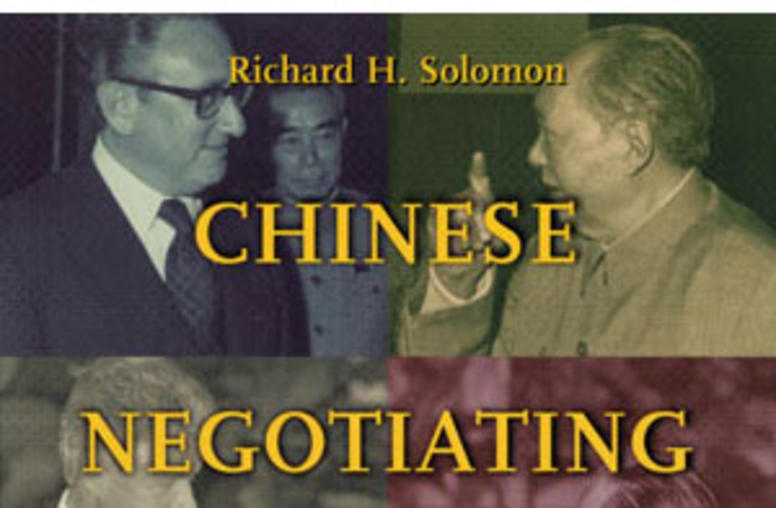
Chinese Negotiating Behavior
After two decades of hostile confrontation, China and the United States initiated negotiations in the early 1970s to normalize relations. Senior officials of the Nixon, Ford, Carter, and Reagan administrations had little experience dealing with the Chinese, but they soon learned that their counterparts from the People’s Republic were skilled negotiators.
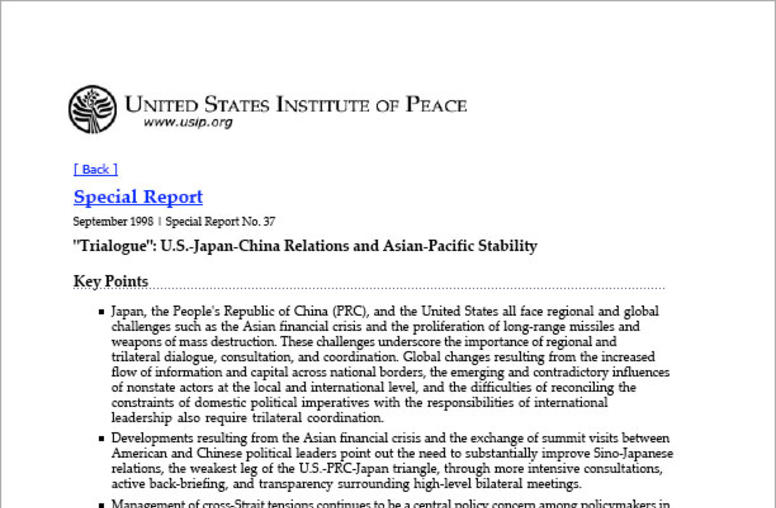
"Trialogue": U.S.-Japan-China Relations and Asian-Pacific Stability
The exchange of summits between the leaders of the People's Republic of China and the United States, the Asian financial crisis, and the decision by India and Pakistan to engage in nuclear testing have redirected the security agenda of the Asia-Pacific region. Such developments underscore the ongoing difficulties inherent in the transition from traditional approaches to security defined by the Cold War to a post-Cold War structure of international relations in the Asia-Pacific.
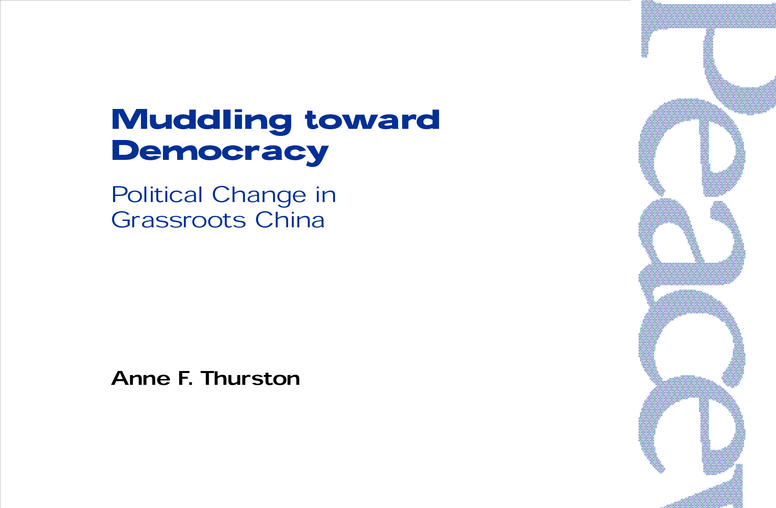
Muddling toward Democracy: Political Change in Grassroots China
Among the most significant political reforms implemented by the Chinese government since 1989 is the introduction of competitive elections into rural villages. This study, based largely on fieldwork conducted between 1995 and 1997, examines China's efforts to bring competitive elections to the country's rural areas and attempts to explain why local democracy has proved more successful in some places than in others.
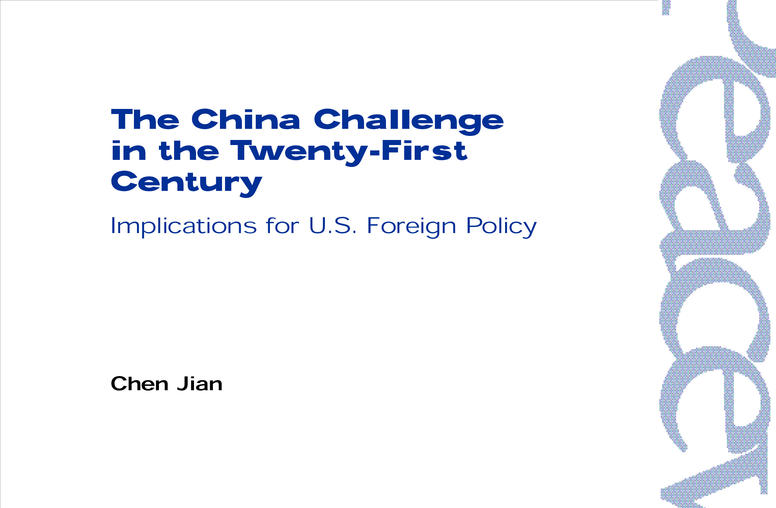
The China Challenge in the Twenty-First Century: Implications for U.S. Foreign Policy
Despite Asia's current financial crisis, China's rapid economic growth raises the question of whether or not it will emerge as a dominant regional power, or even a hegemonic world power, in the twenty-first century. For many in the West and in China's neighboring countries, this prospect is very troublesome.